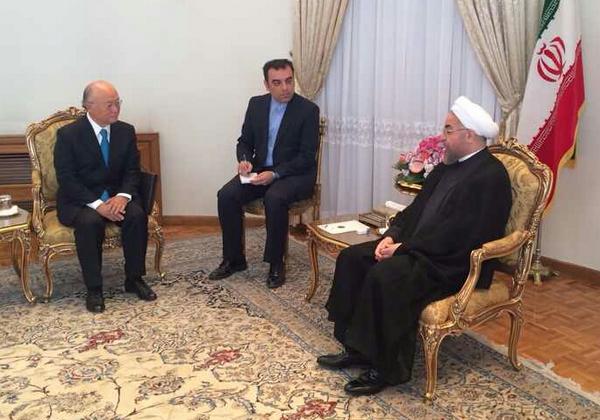The Iranian President Hassan Rouhani has ruled out any negotiations whatsoever over the Islamic Republic’s defensive missile capabilities.
“Iran’s missile capability is by no means and at no level negotiable,” Rouhani said in a meeting with International Atomic Energy Agency (IAEA) Chief Yukia Amano in Tehran on Sunday.
Some Western officials, particularly in the US, have called for Iran’s missile program to be included in the country’s nuclear talks with the P5+1 – Russia, China, France, Britain, the US and Germany.
“Tehran is serious in its negotiations with the P5+1 countries and the International Atomic Energy Agency and wants nothing more than its right including [uranium] enrichment for peaceful purposes,” Rouhani added.
He said the UN nuclear agency has carried out regular inspections of Iran’s nuclear facilities over the past 12 years and repeatedly verified lack of any diversion in the country’s nuclear energy program.
In line with international principles, Iran has always sought technical, legal and transparent cooperation with the IAEA, Rouhani said, adding that Tehran needs modern technologies including a peaceful nuclear program for its development.
The Iranian president further said Iran would only agree to legal inspections by the agency and based on the Non-Proliferation Treaty (NPT) and the IAEA Safeguards, warning that “extralegal surveillance sets a precedent that would be detrimental to all developing countries.”
Rouhani emphasized that in case of a final nuclear deal with the P5+1, according to an agreement reached last November, Iran would proceed with its required enrichment activities inside the country and the other side would lift all the unilateral and international sanctions against Tehran.
“Achieving a comprehensive agreement will undoubtedly be a win-win game for both sides and help [promote] peace and stability in the region and the world,” he pointed out.
Iran and the five permanent members of the UN Security Council plus Germany have been holding talks to sort out their differences and achieve a final comprehensive deal that would end the decade-old dispute over Iran’s nuclear energy program. The two sides reached an interim agreement last November in Geneva dubbed the Joint Plan of Action.
In July, the two sides agreed on the extension of their discussions until November 24 in an effort to achieve a permanent nuclear deal.
Amano, for his part, expressed hope that the dispute over Iran’s nuclear energy program would be resolved soon.
He said the IAEA praises Iran’s readiness to show even more transparency on its nuclear energy activities, adding that this can serve as a model for cooperation.
